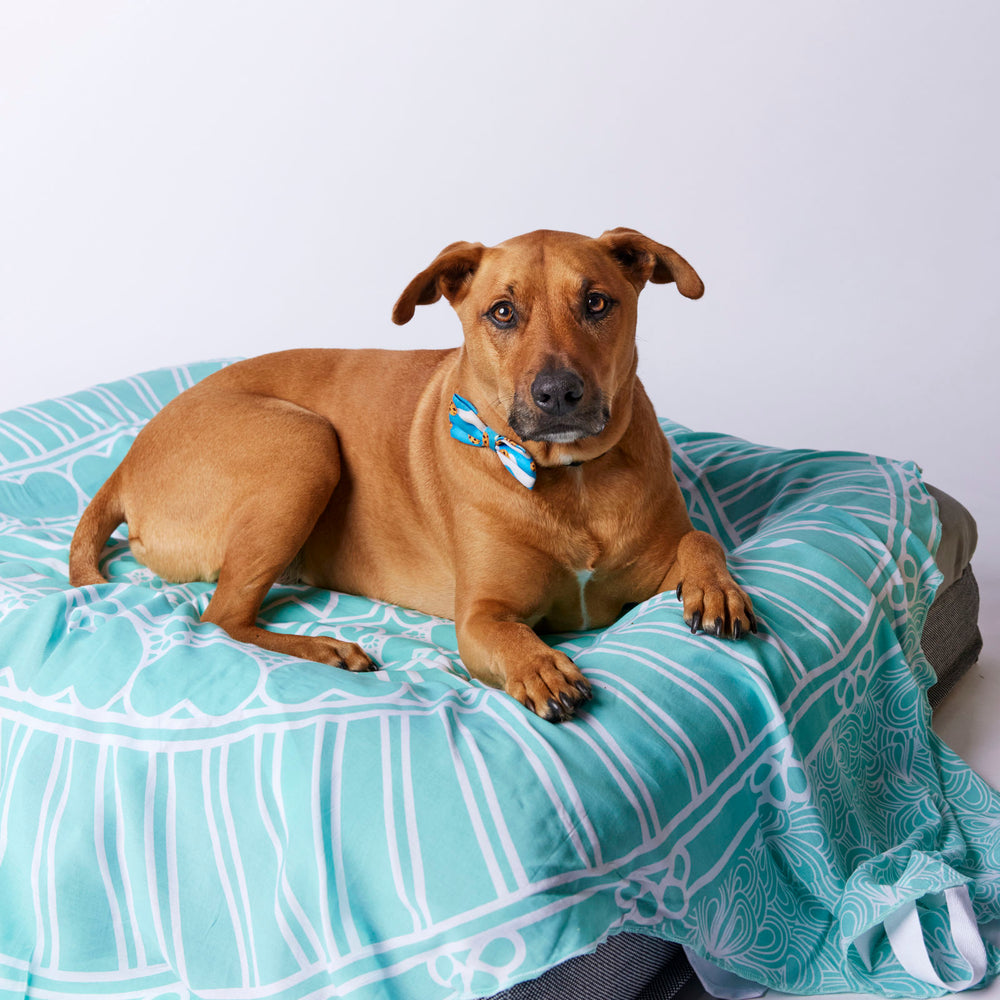Senior Pet First Aid: Handling Emergencies at Home

Our senior pets can get into trouble at any time (we've all had a pet get into something they shouldn't!).
But, knowing how to deal with those pet emergencies is crucial for a pet owner. If we are prepared we can respond promptly before visiting a vet, which can be potentially life-saving.
Staying calm but acting fast is the key to dealing with an emergency.
- Check if your pet is conscious, breathing properly, or bleeding.
- Once you have determined what the emergency is, take measures to stabilise your pet.
- Contact your vet immediately and follow their advice.
It is a good idea to know some first aid basics, as this will allow you to stabilise your pet until you get vet advice. Knowing what to do and how to deal with your pet if there is an emergency could be vital.
Here's how to identify and handle common medical emergencies in senior pets:
Respiratory Distress and Choking
If a senior dog is gasping for air or gagging, they are likely to be suffering from choking or some other respiratory emergency.
- Try to open your pet's mouth and check for an airway obstruction.
- If there is an object, try to remove it carefully.
- If the object doesn’t move, try lifting your pet off the ground with the head pointing down.
- If that doesn’t work, try different choking manoeuvres suitable for your pet.
CPR (Cardiopulmonary resuscitation)
If your senior pet is not breathing properly, there is a chance there will also be no heartbeat.
- Try to get your pet's attention to see if they show any response.
- Next, place your ear against the left side of the chest just behind the elbow and listen to for the heartbeat.
- If that doesn’t work, place two fingers in the middle of the inner thigh to feel the pulse.
A lack of heartbeat or pulse indicates that your pet's heart has stopped.
A trained professional is best to perform the CPR. However, we as pet parents, can learn how to perform CPR if we find ourselves in an emergency situation.
Bleeding
Trauma or injury from sharp objects may lead to bleeding.
If your pet is bleeding from an external wound:
- Place a clean gauze or cloth over the wound.
- Apply consistent and moderate pressure to the bleeding site.
- Elevate the area if possible especially if the bleeding is excessive.
- If your cloth or gauze becomes soaked with blood, try applying another layer to cover the wound.
- Maintain pressure on the wound until your pet gets into the hands of the professionals.
- Ensure your pet's wounds have an immediate veterinarian assessment. Failure to do so may result in infection or other complications.
Broken Bones
If your senior pet experiences a broken bone, here's what to do:
- Keep the area stable and minimise the movement of that body part if you suspect broken bones in your senior pet.
- For wounds, try to clean them with betadine-based antiseptic wipes or a sterile saline rinse.
- Use a non-stick pad to cover the wound and secure it with bandage tape until you reach your vet.
- Head to a vet immediately so the fracture can be stabilised and your pet can get pain medication.
Have a first aid kit on hand
Although our senior pet's first aid kit is similar to ours, keeping them separate is a better idea. Whilst pet first-aid kits are commercially available, we can make our own.
A pet first-aid kit should contain the following items:
- Latex or nitrile gloves
- Thermometer and water-based lubricant
- Antiseptic wound cleaner and wipes
- Anti-bacterial wound ointment
- Tweezers
- Bandage scissors
- Nail trimmers and styptic powder
- A pet emergency instructional book
- Towels, blankets, and washcloths
Keep your pet's emergency kit in an easily accessible spot at home. You could make multiple first aid kits to keep at home and in vehicles for travelling. Inspect first aid kits every few months to keep them organised and well-stocked.
As a reminder, there is no place better than a veterinary clinic for treating a pet's medical emergency. They can provide some tips over the phone and if needed direct you to the clinic. Keep the contact details for your vet in a handy place at all times and investigate where your emergency vet is and what clinics are available 24hrs.
Accidents can happen anytime, anywhere - and any illness or injury that our senior pets experience will need our attention, but having knowledge about pet first aid can help us all save the lives of our beloved companions!









